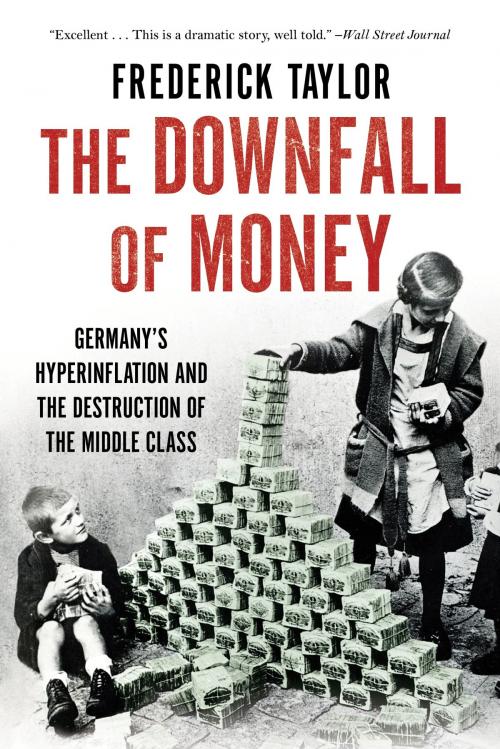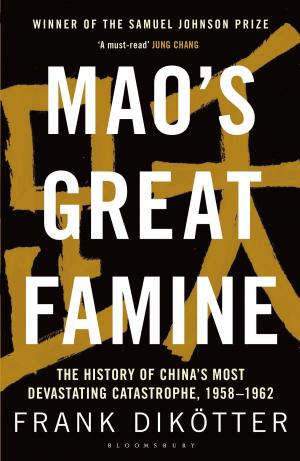The Downfall of Money
Germany’s Hyperinflation and the Destruction of the Middle Class
Nonfiction, History, Germany, Business & Finance, Finance & Investing, Finance| Author: | Frederick Taylor | ISBN: | 9781620402382 |
| Publisher: | Bloomsbury Publishing | Publication: | September 17, 2013 |
| Imprint: | Bloomsbury Press | Language: | English |
| Author: | Frederick Taylor |
| ISBN: | 9781620402382 |
| Publisher: | Bloomsbury Publishing |
| Publication: | September 17, 2013 |
| Imprint: | Bloomsbury Press |
| Language: | English |
An economic horror story: The complete meltdown of a major modern country's financial system, and its disastrous effects on every aspect of society.
A hundred years ago, many theorists believed-just as they did at the beginning of our twenty-first century-that the world had reached a state of economic perfection, a never before seen human interdependence that would lead to universal growth and prosperity. Then, as now, the German mark was one of the most trusted currencies in the world. Yet the early years of the Weimar Republic in Germany witnessed the most calamitous meltdown of a developed economy in modern times. The Downfall of Money will tell anew the dramatic story of the hyperinflation that saw the mark-worth 4.2 to the dollar in 1914-plunge until it traded at over 4 trillion to 1 by the autumn of 1923.
The story of the Weimar Republic's financial crisis clearly resonates today, when the world is again anxious about what money is, what it means, and how we can judge if its value is true. It is a trajectory of events uncomfortably relevant for our own uncertain world.
Frederick Taylor-one of the leading historians of Germany writing today- explores the causes of the crisis and what the collapse meant to ordinary people and traces its connection to the dark decades that followed. Drawing on a wide range of sources and accessibly presenting vast amounts of research, The Downfall of Money is a timely and chilling exploration of a haunting episode in history.
An economic horror story: The complete meltdown of a major modern country's financial system, and its disastrous effects on every aspect of society.
A hundred years ago, many theorists believed-just as they did at the beginning of our twenty-first century-that the world had reached a state of economic perfection, a never before seen human interdependence that would lead to universal growth and prosperity. Then, as now, the German mark was one of the most trusted currencies in the world. Yet the early years of the Weimar Republic in Germany witnessed the most calamitous meltdown of a developed economy in modern times. The Downfall of Money will tell anew the dramatic story of the hyperinflation that saw the mark-worth 4.2 to the dollar in 1914-plunge until it traded at over 4 trillion to 1 by the autumn of 1923.
The story of the Weimar Republic's financial crisis clearly resonates today, when the world is again anxious about what money is, what it means, and how we can judge if its value is true. It is a trajectory of events uncomfortably relevant for our own uncertain world.
Frederick Taylor-one of the leading historians of Germany writing today- explores the causes of the crisis and what the collapse meant to ordinary people and traces its connection to the dark decades that followed. Drawing on a wide range of sources and accessibly presenting vast amounts of research, The Downfall of Money is a timely and chilling exploration of a haunting episode in history.















